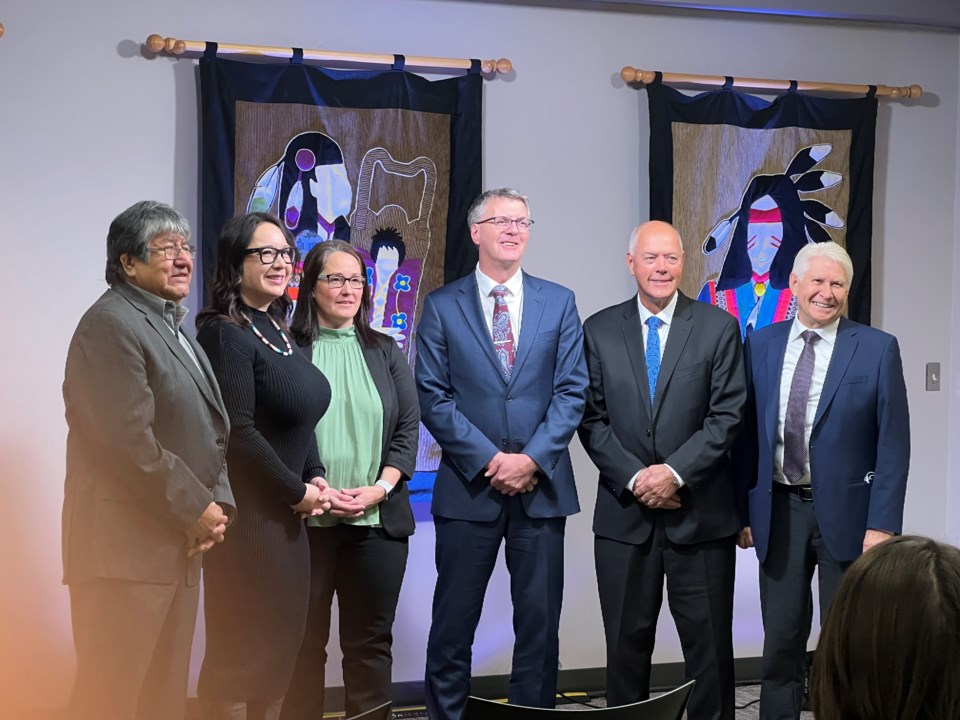THUNDER BAY – Thunder Bay will see some progress on the dire need for more transitional and affordable housing in 2023, thanks to new projects by Dilico Anishinabek Family Care and Matawa First Nations that were announced on Friday.
Dilico will build 10 transitional housing units at its Yonge Street location in Westfort, while Matawa will build six affordable housing units on McLaughlin Street, in the city’s east end.
The projects are supported with around $2.1 million in funding announced Friday by the provincial government and Thunder Bay District Social Services Administration Board.
Dilico’s transitional housing units will be open to youth aged 16 to 24 years old who are experiencing or at-risk of homelessness, the province said.
Residents in the building will have access to counselling, addictions treatment, and cultural supports, and Dilico says it will also organize programming like guest speakers and land-based activities.
“Anything that the youth identify as a need, we can 100 per cent put it in,” said assistant director of children’s mental health Kristine Stasiuk.
The ten units could accommodate up to two people each, depending on residents’ living situations.
“We know there’s a lot of youth who have built relationships being homeless, so sometimes we may be able to support them in collaboration living together, to continue that supportive network,” Stasiuk said.
The project received $390,728 through the provincial Social Services Relief Fund and another $409,272 from the DSSAB’s reserve funds.
Construction began on the building in July and is scheduled for completion in March of 2023, the DSSAB said.
Matawa’s project involves building six two-bedroom affordable housing units in a building on McLaughlin Street.
The units, which are also supported by Ontario Aboriginal Housing Services, will be targeted to people identifying as First Nations, Métis, or Inuit, but not restricted to members of Matawa communities, said the tribal council’s CEO David Paul Achneepineskum.
It’s estimated about two-thirds of those who are homeless in Thunder Bay are Indigenous, according to local point-in-time surveys.
The units will be funded with $1.3 million from the provincial Social Services Relief Fund (SSRF) created during the pandemic, which the government says has so far provided over $1 billion in support for homelessness and housing and other initiatives.
“Today’s investment will continue to support local innovative housing solutions in the Thunder Bay area to protect our most vulnerable for years to come,” said Minister of Municipal Affairs and Housing Steve Clark.
Matawa has owned the east end property for at least 10 years, Achneepineskum said, and worked with the City of Thunder Bay to rezone it to accommodate a larger building.
Three of the six units will be accessible to those with mobility challenges, he added.
The project will help take some people off of the DSSAB’s waiting list for affordable housing, Achneepineskum said, but noted that list is over 1,000 names long.
He pointed to Matawa’s work on a tiny homes project as one example of the partnerships needed to continue progress.
Matawa also announced in October it would build 21 new transitional housing units with $2.1 million in provincial support.
